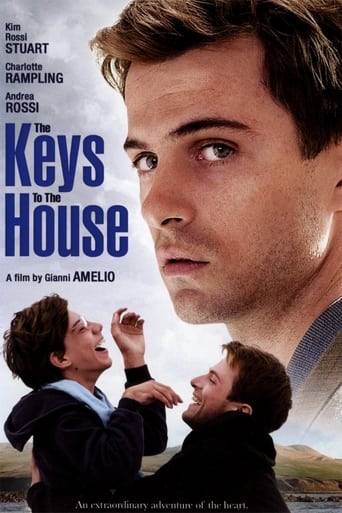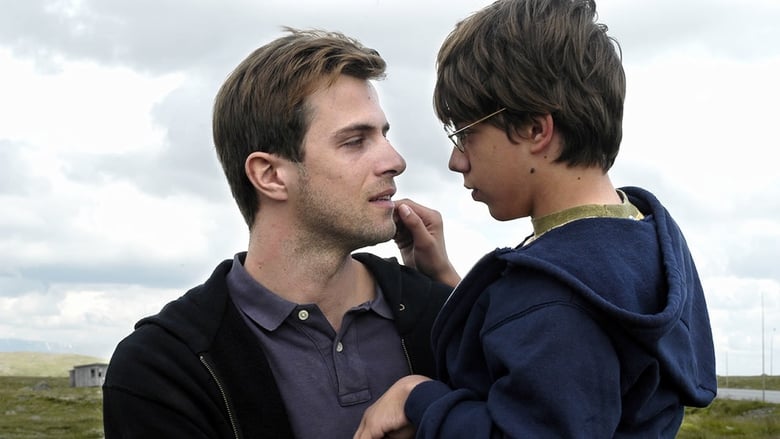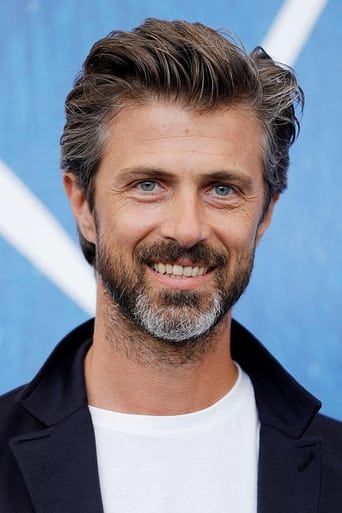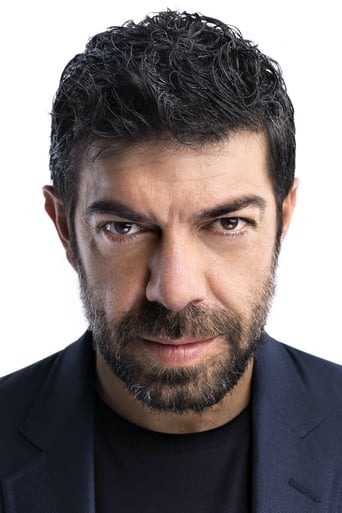

The Keys to the House (2004)
Meeting his handicapped son for the first time, a young father attempts to forge a relationship with the teenager.
Watch Trailer
Cast
Reviews
What a freaking movie. So many twists and turns. Absolutely intense from start to finish.
At first rather annoying in its heavy emphasis on reenactments, this movie ultimately proves fascinating, simply because the complicated, highly dramatic tale it tells still almost defies belief.
The plot isn't so bad, but the pace of storytelling is too slow which makes people bored. Certain moments are so obvious and unnecessary for the main plot. I would've fast-forwarded those moments if it was an online streaming. The ending looks like implying a sequel, not sure if this movie will get one
A great movie, one of the best of this year. There was a bit of confusion at one point in the plot, but nothing serious.
a love story. or a friend story. beautiful for the science to use the right tone about a delicate and painful problem. a touching portrait of parenthood. and its nuances. and its price. and its limits. after its end, the basic thing who remains, long time, alive in memory, is its special simplicity. delicate, convincing, touching. like a confession. with its lovely form of poetry of small, basic things. with the science to not be more than honest exposure of well known facts. for the flavor of personal story. and , not the last, as the expected film.
Amazing how a simple, straightforward film shot in almost a documentary style can be seen in completely different ways by different people. The Keys to the House is a strangely moving, yet unsentimental tale about how real people react when confronted with both trauma and disability. Some stay and carry the burden. Others run away. We all think we would stay, but how sure are we? Once the decision is made to run, consciously or otherwise, how do we come back? When there is no direct contact, the avoided lessens in personal value; but does what we avoid truly go away? Do we really want it to? The main protagonists in the film are a disabled boy and the father who abandoned him at birth. Many reviews were judgmental of the father's rejection of a disabled child,although this was not a factor in the actual abandonment - both he and the boy's mother were teenagers when she became pregnant. The fact that she died giving birth to his child fed his guilt, imagined or not, that he was to blame for her death. He barely stayed with her mother and sister at the hospital to hear what happened to the baby.That reaction and his continued refusal to try to at least see his son, eventually raised by the mother's sister and her husband, smacks of fear and immaturity rather than cold-hearted rejection. He is introduced to us as the impossibly perfect Kim Rossi Stuart, an actor so beautiful we are immediately disdainful of him - did he leave because the child was not as perfect as he? We are suspicious of his motives in suddenly coming into the boy's life after 15 years although he is not the person to initiate contact. The boy's doctors have suggested that meeting his birth father may help speed effectiveness of the boy's developmental therapy, so he is literally cornered into it by the uncle, who against his wife's wishes arranges to have the father escort the boy to specialized therapy in Germany. It is clear that the uncle does this out of love for the boy, but why does the father agree to do it? In subtle ways, we see he is not without feeling for the boy - he is hesitant to touch him yet devours him with his eyes; as the story progresses, his contact becomes increasingly tactile - as one reviewer said, stroking him almost as if he were a pet.The choice of actors is brilliant for the same reasons another reviewer found unpalatable - in real life, disabled people can come from the most physically "perfect" human specimens - in this case the child's disability was as a result of birth trauma. The father is as emotionally damaged as the son is physically - they both seem to need each other on an almost primal level. It minimizes the intelligence of both the actor (Andrea Rossi)and his character Paolo, the son, not to recognize this. Mood swings and repetition do not negate a functioning heart or mind in Paolo; he is aware of more than we think. The actor Andrea Rossi (is he related to Kim Rossi Stuart?) is brilliant as Paolo; that he is also afflicted with muscular dystrophy makes his performance even more affecting. I reject the review that suggests this disability as the reason we should cheer his acting, however; MUSCULAR dystrophy does not affect the mind (Steven Hawking?) even if the director supposedly fed him lines off-camera, his innate ability (I thought he was ACTING the physical part) is what actually made Paolo believable as a character.As always, Charlotte Rampling is excellent as the mother of another patient in Paolo's hospital. She has taken on her daughter's disability as her life's-work. Yet even she is human and has wished to run away. The difference between the parents is that she continues to do, despite the occasional lapse. Paolo's father has to grow up and come to terms with the reality of the disability as well as his newfound love for his son as a person before they can move on as father and son. That he is willing to continue to try, after failing several times, is his most redeeming factor in the movie.
Being a special parent of and active in the community of special (aka mentally handicapped) children, this story hit close to home. Especially the way in which it illuminated two very subtle yet extraordinarily important aspects of the behavior and psychology of this child as well as a parent.In the movie, the biological father Gianni is shown to have "given up" the child Paolo to another couple. I would interpret this not so much in a literal way, but more in an allegorical way, since even in real life, due to the trauma and complexity of parenting a special child, parents may "lose touch" with the child, even if the child is in house. It is a huge challenge, especially balancing the child's care with other aspects of life including social, career, health, other siblings of the child etc. All too often, the special child itself becomes only a tiny part of the whole "system" and mind numbing "details" of providing care.The film also brilliantly portrays the resolution ["""potential spoiler***] of the above dilemma thats all too common in special parents' lives. Initially Gianni tries to deal with Paolo in a loving yet ultimately paternalistic way. But this doesn't get him anywhere near his goal of bonding with Paolo. In the end, only when Gianni literally breaks down, and becomes as helpless as a child himself, and lets Paolo comfort him as a father would, does the real bonding between father and son occur on a level playing field.This is an incredibly insightful object lesson, and is so true in the often dark, challenging yet ultimately fulfilling lives of special parents.This movie is a veritable ode to the divine relationship that exists between such parents and their special children.I rate this movie 10/10 due to its authenticity and humanism.PS: Another movie on the same topic, but from a siblings perspective is A Time For Drunken Horses by Bahman Ghobadi.
"Le Chiavi di Casa" is a strangely unmoving film, considering its potentially heart-melting subject: it had all the elements to make us dehydrate out of crying, and yet it leaves us distant. It sure isn't the fault of funny, charming young Andrea Rossi, who plays the disabled Paolo; Rossi is utterly inspiring (as he must certainly be in real life) and full of joy. But the script is filled with annoying idiosyncrasies -- they make you go "naah!" when you should be swept up in the story. How can the father not go looking for his missing disabled son in a foreign city and choose instead to tell his life story to a woman he's barely met? And what about him throwing the boy's walker at sea? Or leaving the boy alone at the hotel? Or stealing him away from physical therapy? Or not even asking his wife about his new-born baby back home? Was there EVER a more inept father?These inconsistencies are enhanced by Kim Rossi Stuart's frustrating, uncharismatic performance: he's like a top model lost in a gritty drama -- handsome but shallow, bordering on moronic. Anyway, the point of this review is to praise Charlotte Rampling: what an actress she has become over the years! Film after film, she graces us with memorable performances, from "Sous le Sable" and "Swimming Pool" to "Lemming" and the otherwise insufferable "Vers le Sud" and now "Le Chiave...". She has reached this age when her (naturally aged) face is so rich and lived in that she can build a flesh-and-blood character with one look and one half-smile. In her very first scene, we feel at once we KNOW that life-beaten mother. Her "big" scene (where she reveals her tormented thoughts about her severely disabled daughter) is the most heart-wrenching thing in the whole movie -- you can totally sympathize with her obvious but "controlled" grief and her "living day-by-day" philosophy. You see a woman who's cried every single tear out of her body through the long years of devotion to her daughter, her youth and hopes lost along the way. You can understand her envy of mothers whose children have had better results from therapy than her own daughter, and even understand her mixed feelings about her daughter's attachment to life ("Perché non muore?"). Her performance is so good it makes her lines sound better -- even if her Italian is less than fluent -- than anything else in the script.My vote: 6 stars out of 10. If you happen to have a disabled relative or friend that you take care of (or care about), that rating certainly goes up.


